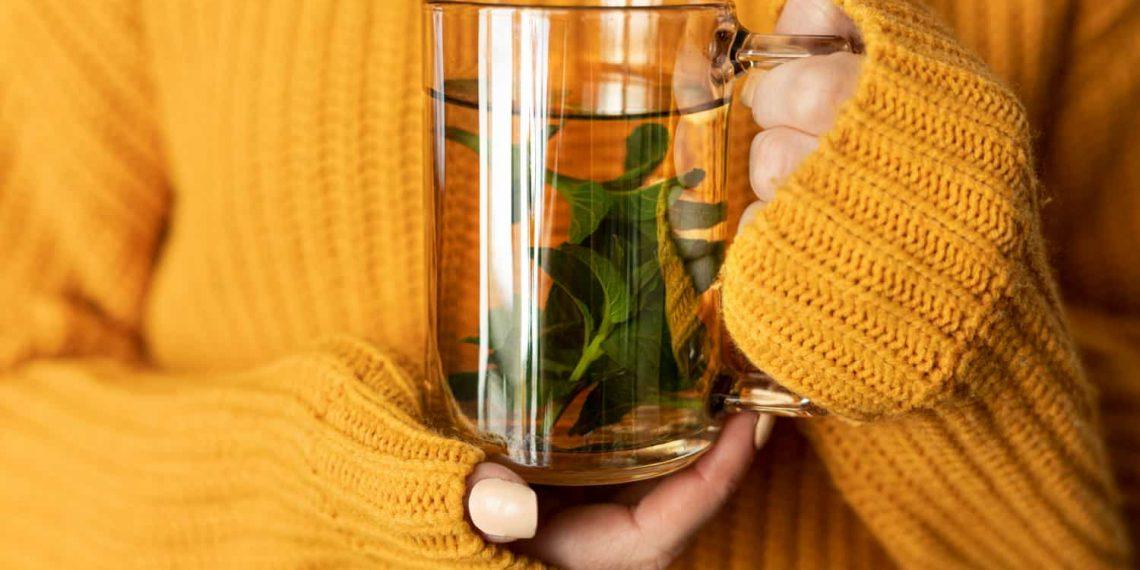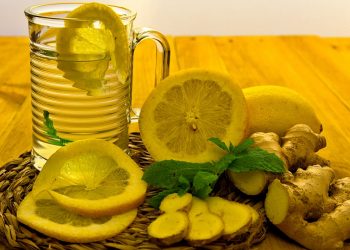Stress doesn’t just whisper—it shouts. From the moment your alarm jolts you awake to the minute you finally shut your eyes, the day hurls demands, deadlines, and decisions at you. You’re constantly on edge, and it’s taking a toll. That’s where herbal teas for chronic stress come in—not as a cure-all, but as a daily, natural way to soothe your body and mind from the inside out.
We’re diving deep into the herbal teas for chronic stress that do more than just smell lovely—they restore, replenish, and reset your frazzled nervous system without the side effects of synthetic solutions. These aren’t trendy health fads. These are centuries-old remedies trusted across cultures, now confirmed by modern research.
Contents
- What Makes Herbal Teas for Chronic Stress So Effective?
- 1. Chamomile – The Classic Calmer
- 2. Ashwagandha – The Adaptogenic Ally
- 3. Lemon Balm – The Gentle Focus Enhancer
- 4. Passionflower – Nature’s Nervous System Support
- 5. Holy Basil (Tulsi) – The Mood Regulator
- 6. Valerian Root – The Deep Relaxer
- 7. Lavender – Aromatic Calm in a Cup
- 8. Peppermint – Mind and Muscle Relief
- 9. Rhodiola Rosea – The Stamina Saver
- How to Incorporate Herbal Teas for Chronic Stress into Your Life
- Blend Ideas Featuring Herbal Teas for Chronic Stress
- Side Notes on Safety
- The Bottom Line: Let Herbal Teas for Chronic Stress Be Your Daily Reset
- FAQs
What Makes Herbal Teas for Chronic Stress So Effective?
The beauty of herbal teas for chronic stress lies in their simplicity. You don’t need a prescription or a fancy routine—just hot water, the right herbs, and a few quiet minutes.
These teas work by:
-
Supporting the nervous system with nervine and adaptogenic compounds.
-
Reducing cortisol levels, the hormone responsible for long-term stress damage.
-
Providing antioxidants that combat oxidative stress.
-
Helping re-establish sleep-wake cycles, which are often disrupted by chronic stress.
Whether you sip once a day or create a full-on tea ritual, these botanicals help your body process and release stress more efficiently, giving you a real chance to breathe.
1. Chamomile – The Classic Calmer
Among all herbal teas for chronic stress, chamomile is the gold standard. Known for its daisy-like flowers and sweet, apple-like aroma, chamomile relaxes both the body and the mind.
Why it works:
Chamomile is rich in apigenin, a compound that gently binds to brain receptors responsible for calming anxiety and promoting sleep.
Best for:
Stress-induced insomnia, nighttime anxiety, mood irritability.
2. Ashwagandha – The Adaptogenic Ally
This robust root has been used in Ayurvedic medicine for centuries. As far as herbal teas for chronic stress go, ashwagandha is a top-tier adaptogen.
Why it works:
Ashwagandha supports your adrenal system, regulates cortisol, and helps build resistance to future stressors.
Best for:
Exhaustion, brain fog, hormonal imbalance due to chronic stress.
3. Lemon Balm – The Gentle Focus Enhancer
Mild and minty, lemon balm is a delight to drink and a proven mood stabilizer.
Why it works:
Lemon balm boosts GABA activity in the brain, easing feelings of restlessness without making you sleepy.
Best for:
Afternoon crashes, emotional overwhelm, chronic nervous tension.
4. Passionflower – Nature’s Nervous System Support
Delicate and deeply effective, passionflower is one of the best herbal teas for chronic stress and anxious thinking.
Why it works:
It acts on the central nervous system, calming racing thoughts and promoting better-quality sleep.
Best for:
Overthinking, restlessness, panic loops.
5. Holy Basil (Tulsi) – The Mood Regulator
If your stress is accompanied by mood swings or irritability, tulsi might be your holy grail.
Why it works:
Holy basil modulates stress responses, reduces inflammation, and brings emotional balance.
Best for:
Emotional reactivity, hormone-triggered anxiety, prolonged stress exposure.
6. Valerian Root – The Deep Relaxer
With a robust, earthy aroma and sedative effect, valerian root is often used when sleep is disrupted by chronic stress.
Why it works:
Valerian promotes deeper sleep and decreases nighttime anxiety by increasing GABA availability in the brain.
Best for:
Sleep disorders related to chronic stress, nighttime muscle tension.
7. Lavender – Aromatic Calm in a Cup
The scent of lavender alone can soothe a stressed mind, but its tea form offers deeper benefits.
Why it works:
Lavender has mild sedative and muscle-relaxing effects, making it ideal for easing tension headaches and irritability.
Best for:
Work-related stress, pre-sleep wind-down, emotional burnout.
8. Peppermint – Mind and Muscle Relief
While often overlooked, peppermint tea is one of the most accessible herbal teas for chronic stress.
Why it works:
Peppermint relaxes the digestive tract and relieves tension both physically and mentally.
Best for:
Stress-induced stomach upset, anxiety headaches, muscle tightness.
9. Rhodiola Rosea – The Stamina Saver
Not all herbal teas for chronic stress make you sleepy. Rhodiola is ideal if you need energy and stress resistance without the caffeine crash.
Why it works:
Rhodiola increases serotonin and dopamine levels while regulating cortisol, improving resilience and focus.
Best for:
Work stress, cognitive fatigue, high-performance pressure.
How to Incorporate Herbal Teas for Chronic Stress into Your Life
To get the most out of these teas, consistency is key. One cup won’t erase years of tension, but daily use builds long-term benefits.
Tips for creating a tea routine:
-
Morning boost: Rhodiola or peppermint for clarity.
-
Midday reset: Lemon balm or tulsi to counter rising tension.
-
Evening unwind: Chamomile, lavender, or valerian for restful sleep.
Making herbal teas for chronic stress a daily ritual turns your kitchen into a sanctuary. Choose loose leaf for higher potency, and use filtered water to draw out full flavor and benefits.
Blend Ideas Featuring Herbal Teas for Chronic Stress
Mixing herbs can offer a more rounded approach to stress support.
Calm & Clarity Blend:
-
Lemon balm
-
Peppermint
-
Holy basil
Deep Sleep Formula:
-
Chamomile
-
Passionflower
-
Valerian root
Mood-Lifting Mix:
-
Lavender
-
Lemon balm
-
Rhodiola (use sparingly)
Side Notes on Safety
While herbal teas for chronic stress are generally safe, a few precautions go a long way:
-
Always source high-quality, organic herbs.
-
Avoid valerian or passionflower if pregnant or nursing unless approved by a healthcare provider.
-
Consult a doctor if taking medications for anxiety, depression, or blood pressure.
The Bottom Line: Let Herbal Teas for Chronic Stress Be Your Daily Reset
There’s no such thing as a stress-free life—but there is a better way to navigate it. With the right herbal teas for chronic stress, you can create moments of calm that ripple into every corner of your day.
Start small. Choose one herb. Brew it daily. Pay attention to how your body feels, how your mind settles, and how your energy shifts.
Soon enough, your tea won’t just be a drink. It’ll be your ritual. Your boundary. Your healing.
FAQs
Can I drink herbal teas for chronic stress every day?
Yes. Most herbal teas are safe for daily use, especially when rotated. Long-term consistency often brings the best results.
Are these teas safe for kids or seniors?
Generally yes, but always consult a doctor, especially with potent herbs like valerian or rhodiola.
Can I mix multiple herbal teas in one cup?
Absolutely. Blending herbs can enhance benefits, as long as you’re familiar with their effects and tolerances.
Will herbal teas for chronic stress interact with medications?
Some may. If you’re on prescribed medications, especially for mood or blood pressure, consult your healthcare provider first.
You don’t have to fight stress. You can out-steep it.
Let every cup be an act of calm, of care, of choosing your peace. Keep showing up for yourself—one herbal sip at a time.
Get Your FREE Natural Health Guide!
Subscribe now and receive our exclusive ebook packed with natural health tips, practical wellness advice, and easy lifestyle changes — delivered straight to your inbox.















